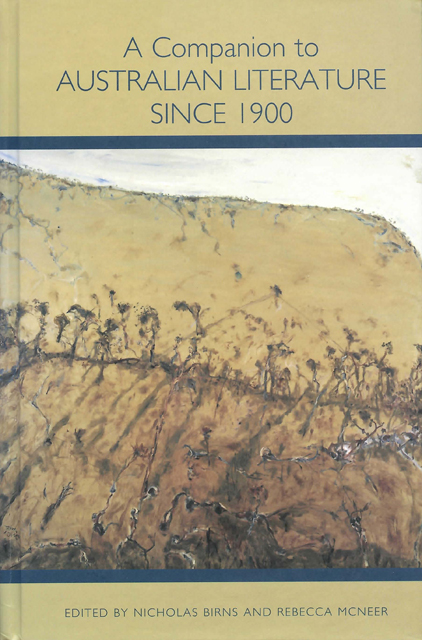Book contents
- Frontmatter
- Dedication
- Contents
- Chronology of Main Events in Australian History, 1901–2005
- Acknowledgments
- Note on the Cover Illustration and Artist
- Introduction
- Part 1 Identities
- Part 2 Writing Across Time
- Part 3 International Reputations
- Part 4 Writers and Regions
- Part 5 Beyond the Canon
- Notes on the Contributors
- Index
25 - Australian Science Fiction
Published online by Cambridge University Press: 10 March 2023
- Frontmatter
- Dedication
- Contents
- Chronology of Main Events in Australian History, 1901–2005
- Acknowledgments
- Note on the Cover Illustration and Artist
- Introduction
- Part 1 Identities
- Part 2 Writing Across Time
- Part 3 International Reputations
- Part 4 Writers and Regions
- Part 5 Beyond the Canon
- Notes on the Contributors
- Index
Summary
The Science-Fiction Genre has roots that extend deep into the nineteenth century and even further into the past. Like its sister genre, modern fantasy, it developed from the fiction of Mary Shelley, Edgar Allan Poe, Jules Verne, Edward Bellamy, William Morris, H. G. Wells, and other literary giants of the Romantic and Victorian Ages. They, in turn, drew on older narrative traditions: myth and legend; epic and romance; folktales and fables; ghost stories; utopian writings; and accounts of fantastic voyages. But the nineteenth century pioneers of science fiction and fantasy also responded — whether with enthusiasm, anxiety, or regret — to the phenomena of science, technology, and industrialization. This is how the cultural phenomenon of science fiction began: in recognition of the entirely new kinds of rapid social change that had commenced with the seventeenthcentury scientific revolution and become increasingly apparent in the next two centuries.
During the same period, exploration and colonialism brought the cultures of Europe into contact with what seemed like strange — sometimes hostile — environments and peoples. One literary response was the narrative of exotic adventures, but there was also a sense of the historical contingency and precariousness of existing cultures and civilizations. This cohered with the undeniable evidence that traditional forms of economic and social organization were candidates for technological transformation.
To the white colonial settlers in Australia, the land seemed eerie and frightening, but Australian-born writers and foreigners with local connections soon began to see the continent’s literary possibilities. By the 1870s, they were producing lost-race romances, works of utopian speculation, and near-future political thrillers about foreign invasion. The utopian works were sometimes set in the land’s deep interior, sometimes in the distant future, sometimes in the vastness of the Pacific Ocean — or even on Mars (Blackford, Ikin, and McMullen 19–35).
One of the most meritorious works of this early period is Handfasted, by Catherine Helen Spence (1825–1910), which depicts a utopian community distinguished by its practice of “handfasting” — a system of yearlong “trial marriage” by contract.
- Type
- Chapter
- Information
- A Companion to Australian Literature since 1900 , pp. 375 - 386Publisher: Boydell & BrewerPrint publication year: 2010



